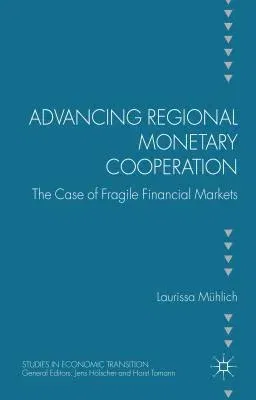Advancing Regional Monetary Cooperation examines regional monetary
cooperation as a strategy to enhance macroeconomic stability in
developing countries and emerging markets. The future of regional
monetary cooperation is being questioned by the euro crisis: should
developing countries and emerging markets, which are already actively
engaged in regional monetary cooperation, refrain from such initiatives
to avoid ending up in a crisis? Or should the euro zone crisis be
regarded as precisely the reason to pursue regional monetary
cooperation, for example in order to jointly shield fragile financial
markets against volatility in international financial markets? These are
highly relevant questions for the developing world and the future of the
global monetary system.
This book addresses these questions by reframing traditional theoretical
approaches to regional monetary integration in an interdisciplinary way.
Special attention is given to the role of emerging markets as anchor
countries in regional monetary cooperation. Detailed case studies are
provided, which examine stabilizing and destabilizing elements of
regional monetary cooperation in Southern Africa and Southeast Asia, and
compare these findings with South America in a cross-regional
perspective.
This book will appeal to an academic audience interested in the
interplay of global, domestic and regional arrangements to provide
liquidity in periods of crisis and to enhance macroeconomic stability.
The issues raised are also highly relevant for policy makers confronted
with an increasingly multipolar world in which developing areas are
looking for adequate ways to integrate at the regional level.

